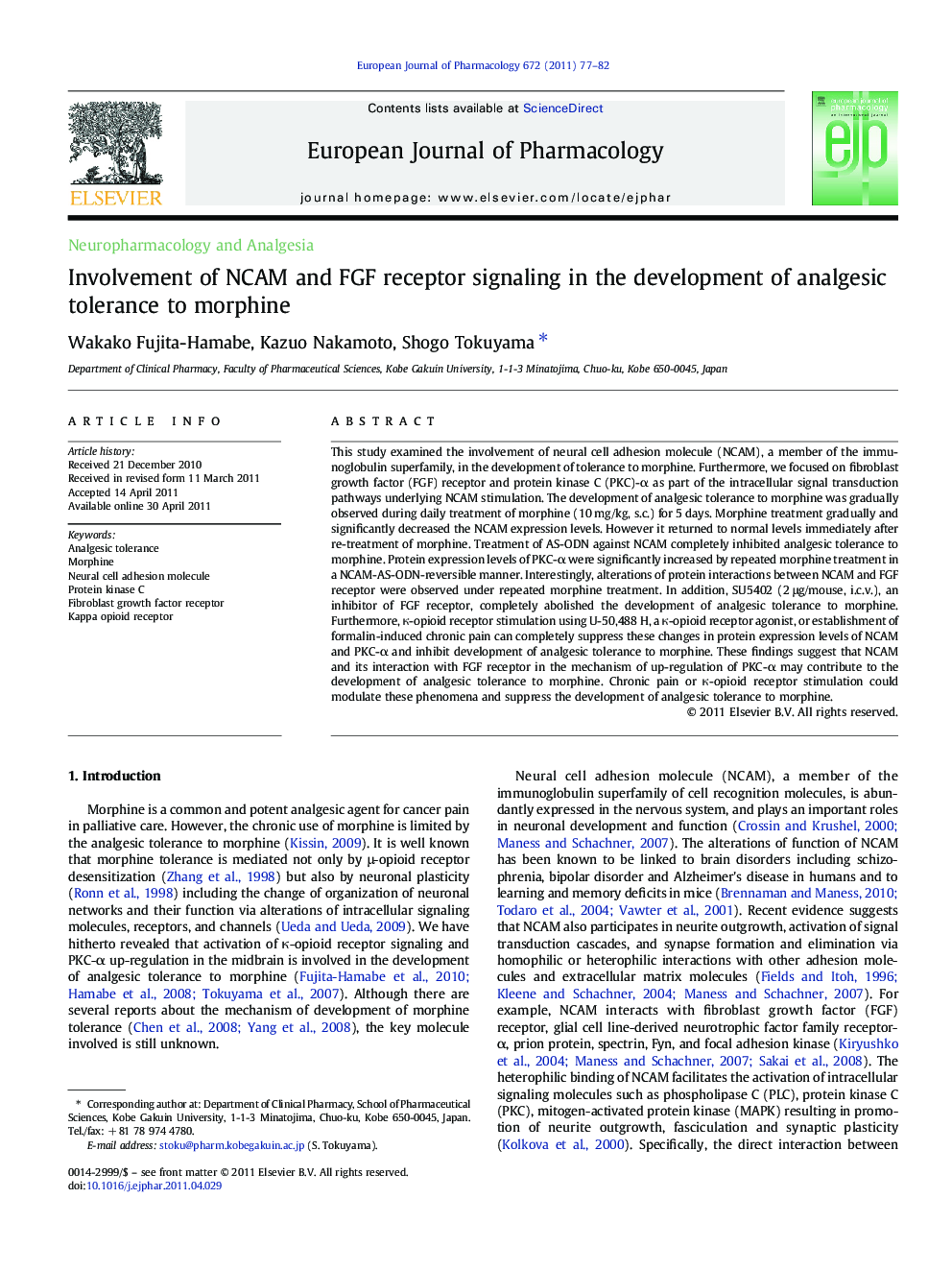| کد مقاله | کد نشریه | سال انتشار | مقاله انگلیسی | نسخه تمام متن |
|---|---|---|---|---|
| 2532404 | 1559010 | 2011 | 6 صفحه PDF | دانلود رایگان |

This study examined the involvement of neural cell adhesion molecule (NCAM), a member of the immunoglobulin superfamily, in the development of tolerance to morphine. Furthermore, we focused on fibroblast growth factor (FGF) receptor and protein kinase C (PKC)-α as part of the intracellular signal transduction pathways underlying NCAM stimulation. The development of analgesic tolerance to morphine was gradually observed during daily treatment of morphine (10 mg/kg, s.c.) for 5 days. Morphine treatment gradually and significantly decreased the NCAM expression levels. However it returned to normal levels immediately after re-treatment of morphine. Treatment of AS-ODN against NCAM completely inhibited analgesic tolerance to morphine. Protein expression levels of PKC-α were significantly increased by repeated morphine treatment in a NCAM-AS-ODN-reversible manner. Interestingly, alterations of protein interactions between NCAM and FGF receptor were observed under repeated morphine treatment. In addition, SU5402 (2 μg/mouse, i.c.v.), an inhibitor of FGF receptor, completely abolished the development of analgesic tolerance to morphine. Furthermore, κ-opioid receptor stimulation using U-50,488 H, a κ-opioid receptor agonist, or establishment of formalin-induced chronic pain can completely suppress these changes in protein expression levels of NCAM and PKC-α and inhibit development of analgesic tolerance to morphine. These findings suggest that NCAM and its interaction with FGF receptor in the mechanism of up-regulation of PKC-α may contribute to the development of analgesic tolerance to morphine. Chronic pain or κ-opioid receptor stimulation could modulate these phenomena and suppress the development of analgesic tolerance to morphine.
The development of analgesic tolerance to morphine by repeated morphine treatment for 5 days was significantly suppressed by NCAM-AS-ODN treatment (A). The expression levels of NCAM in midbrain were varied in quantity during repeated morphine treatment (down-regulation and up-regulation) (B). This repeated morphine-induced “unsteady expression” of NCAM may be involved in the mechanism of the development of morphine tolerance.Figure optionsDownload high-quality image (127 K)Download as PowerPoint slide
Journal: European Journal of Pharmacology - Volume 672, Issues 1–3, 15 December 2011, Pages 77–82